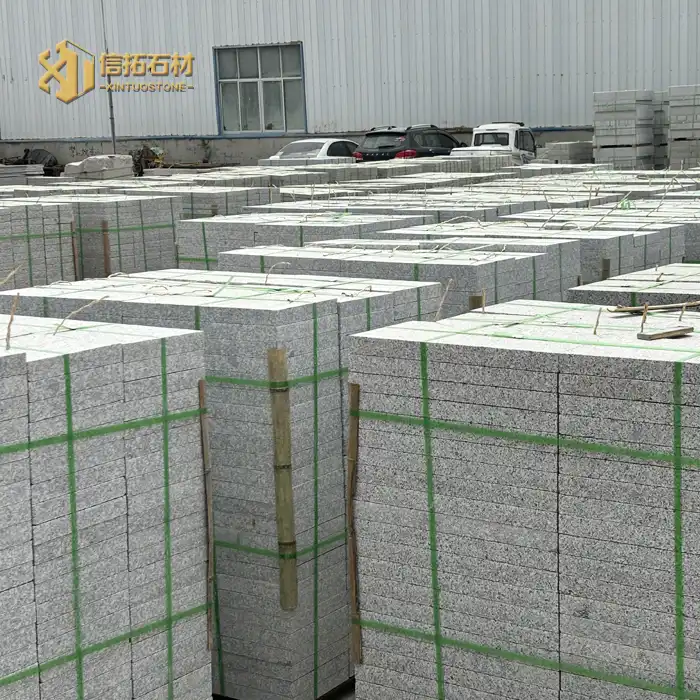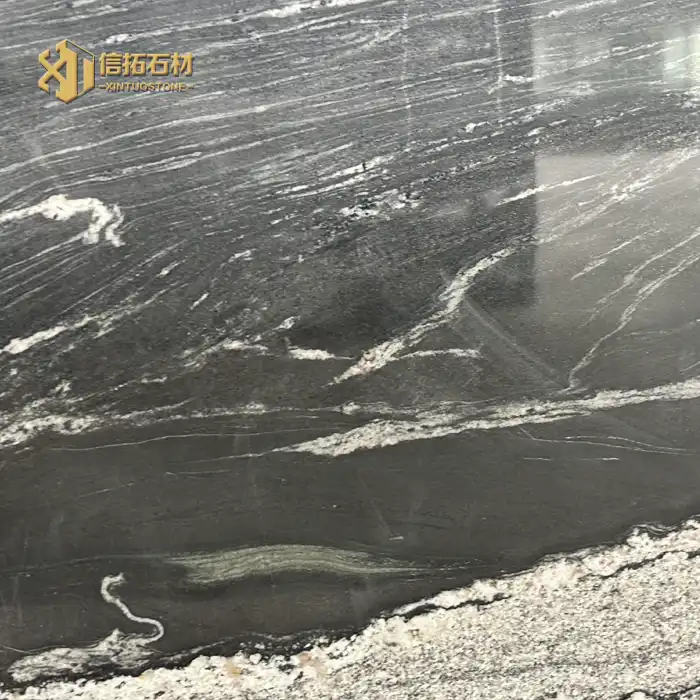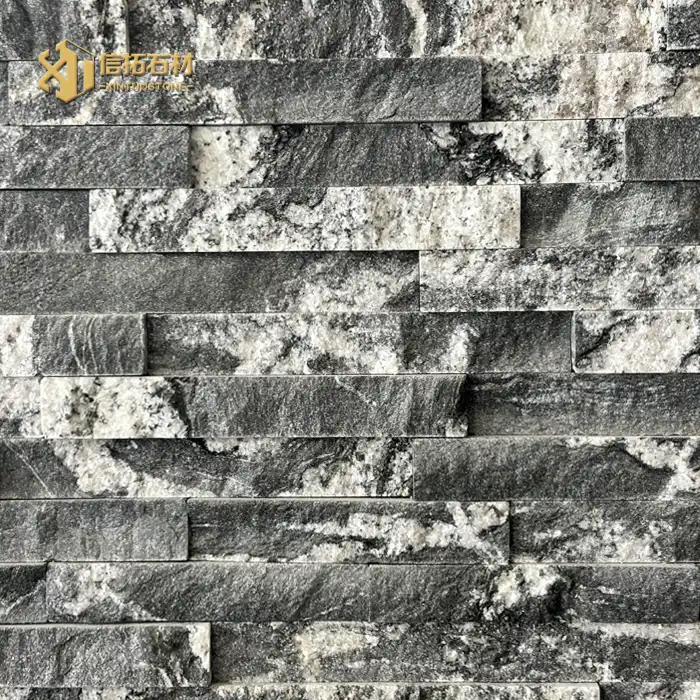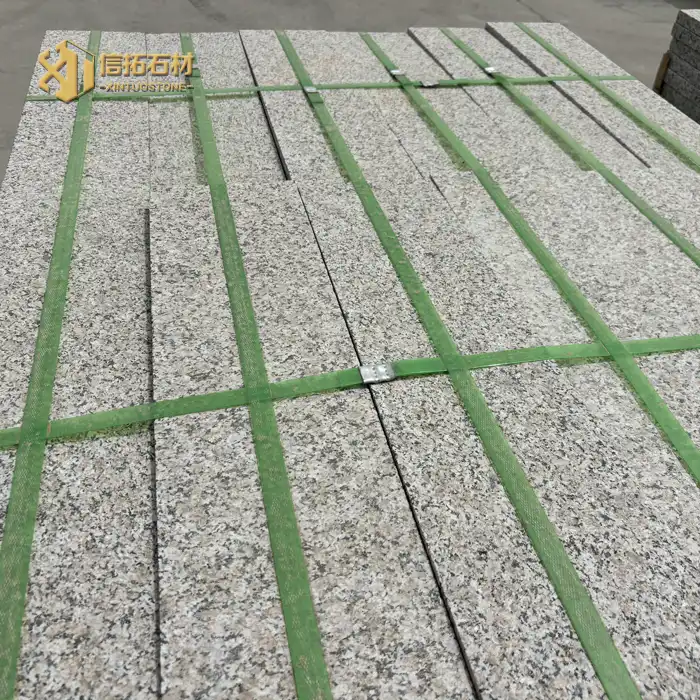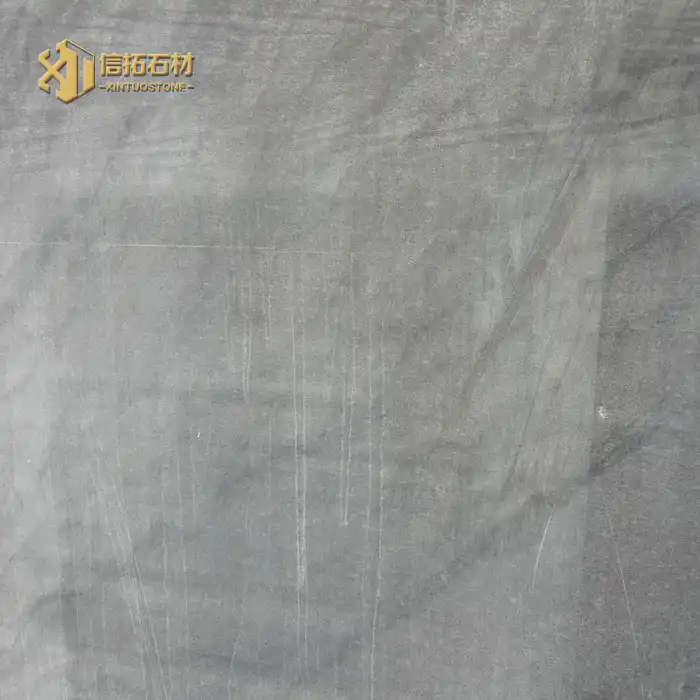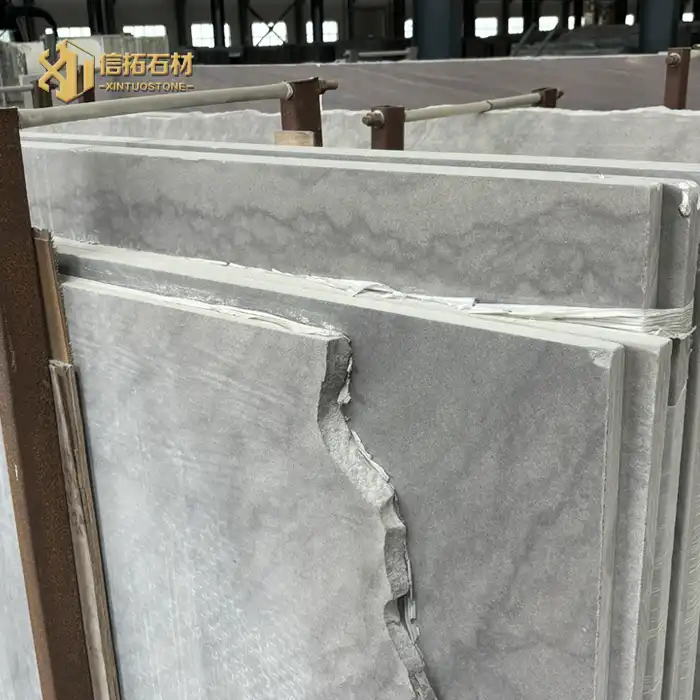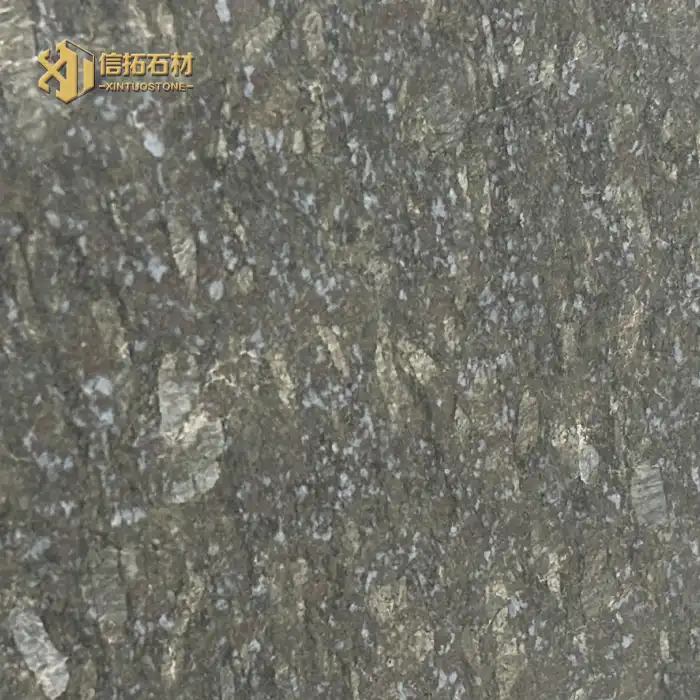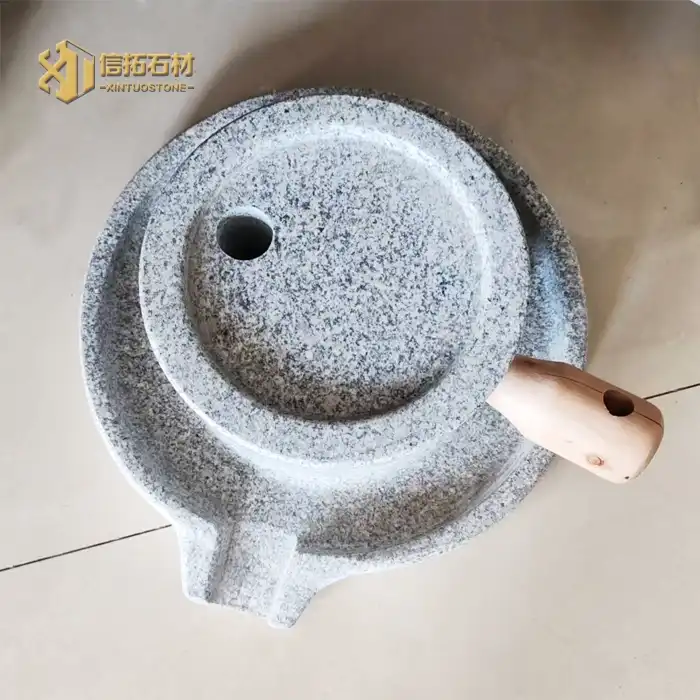How Durable Is Exterior Wall Hanging Stone in Harsh Climates?
2025-07-18 08:56:01
Exterior wall hanging stone has become an increasingly popular choice for architects and builders seeking to enhance the aesthetic appeal and durability of building facades. As the demand for sustainable and long-lasting building materials grows, it's crucial to understand how these stone cladding systems perform in challenging weather conditions. This blog post delves into the durability of exterior wall hanging stone in harsh climates, exploring its resilience against various environmental factors such as extreme temperatures, heavy rainfall, and freeze-thaw cycles. We'll examine the properties that make certain types of stone more suitable for exterior use, the importance of proper installation techniques, and the role of regular maintenance in ensuring the longevity of these stone facades. By understanding the factors that contribute to the durability of exterior wall hanging stone, property owners and designers can make informed decisions when selecting materials for their projects, ultimately creating buildings that are both visually striking and built to withstand the test of time and nature's elements.
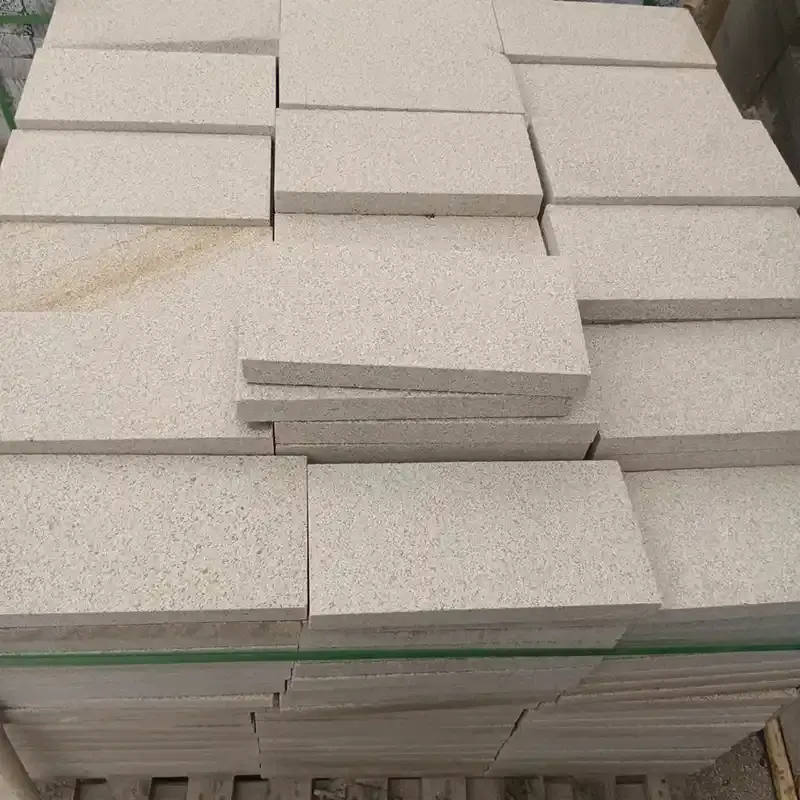
What factors affect the durability of exterior wall hanging stone in extreme weather conditions?
Material composition and properties
The durability of exterior wall hanging stone in harsh climates is significantly influenced by its material composition and inherent properties. Natural stones like granite, limestone, and marble each possess unique characteristics that determine their resistance to weathering. Granite, for instance, is known for its exceptional hardness and low porosity, making it highly resistant to moisture penetration and freeze-thaw damage. Limestone, while softer, can still be durable when properly treated and maintained. The mineral composition of the stone plays a crucial role in its ability to withstand environmental stressors. Quartz-rich stones tend to be more resistant to acid rain and chemical weathering. Additionally, the stone's porosity and absorption rate are critical factors, as they affect how much water the material can absorb and, consequently, how susceptible it is to freeze-thaw cycles. When selecting exterior wall hanging stone for harsh climates, it's essential to consider these material properties to ensure long-lasting performance and aesthetic appeal.
Installation methods and quality
The durability of exterior wall hanging stone in challenging weather conditions is heavily dependent on the installation methods and quality of workmanship. Proper installation techniques are crucial for ensuring that the stone cladding can withstand harsh environmental factors. The use of high-quality anchoring systems, such as those offered by Wulian Xintuo Stone Co., Ltd., is essential for securely fastening the stone panels to the building structure. These systems must be corrosion-resistant and capable of accommodating thermal expansion and contraction. The installation process should also include appropriate waterproofing measures to prevent moisture infiltration behind the stone panels, which can lead to deterioration over time. Proper joint sealing and the use of compatible materials for grout and adhesives are equally important. Skilled installers who understand the specific requirements of exterior wall hanging stone in different climates can significantly enhance the longevity and performance of the cladding system.
Environmental exposure and climate variations
The durability of exterior wall hanging stone is greatly affected by the specific environmental conditions and climate variations it is exposed to. In harsh climates, factors such as extreme temperature fluctuations, high humidity, salt exposure in coastal areas, and pollution can all impact the stone's longevity. Freeze-thaw cycles, common in colder regions, can cause significant stress on the stone, potentially leading to cracking or spalling if the material is not adequately resistant. In hot and arid climates, intense UV radiation and thermal shock from rapid temperature changes can cause discoloration and thermal expansion issues. Coastal environments present unique challenges due to salt spray, which can accelerate weathering and lead to efflorescence. Urban areas with high levels of air pollution may expose the stone to acid rain, potentially causing chemical erosion over time. When selecting exterior wall hanging stone for harsh climates, it's crucial to consider these environmental factors and choose materials that have proven resilience in similar conditions. Products from reputable suppliers like Wulian Xintuo Stone Co., Ltd. are often tested and rated for specific climate zones, ensuring optimal performance in challenging environments.
How does the type of stone affect its resistance to weathering and erosion?
Granite's superior durability
Granite is renowned for its exceptional durability as an exterior wall hanging stone, particularly in harsh climates. Its resistance to weathering and erosion stems from its intrinsic properties, making it a top choice for demanding environmental conditions. Granite's high density and low porosity contribute significantly to its weather resistance, as it absorbs minimal moisture, reducing the risk of water-related damage. The interlocking crystal structure of granite provides excellent strength and hardness, allowing it to withstand physical abrasion from wind-blown particles and resist scratching. Additionally, granite's chemical composition, predominantly silica-based, makes it highly resistant to acid rain and other forms of chemical weathering. These properties combined make granite an ideal choice for exterior cladding in areas prone to extreme temperature variations, heavy rainfall, or coastal salt exposure. When sourced from reputable suppliers like Wulian Xintuo Stone Co., Ltd., granite exterior wall hanging stone can maintain its aesthetic appeal and structural integrity for decades, even in the most challenging climates.
Limestone's vulnerability and treatments
Limestone, while a popular choice for exterior wall hanging stone, presents unique challenges when used in harsh climates due to its inherent properties. Composed primarily of calcium carbonate, limestone is more susceptible to acid rain and chemical weathering compared to harder stones like granite. Its relatively high porosity can lead to moisture absorption, making it vulnerable to freeze-thaw cycles in colder climates. However, the durability of limestone can be significantly enhanced through various treatments and proper installation techniques. Surface treatments such as sealing can reduce water absorption and improve resistance to weathering. Some limestone varieties, particularly those with lower porosity, perform better in challenging environments. When considering limestone for exterior wall hanging stone in harsh climates, it's crucial to select high-quality stone from reputable suppliers like Wulian Xintuo Stone Co., Ltd., who can provide guidance on the most suitable varieties and treatments for specific environmental conditions. With proper selection, treatment, and maintenance, limestone can still be a durable and aesthetically pleasing option for exterior cladding, even in demanding climates.
Marble's aesthetic appeal and maintenance needs
Marble, prized for its luxurious appearance, presents unique considerations when used as exterior wall hanging stone in harsh climates. While its aesthetic appeal is undeniable, marble's durability in challenging environments requires careful attention. Composed primarily of calcium carbonate, like limestone, marble is susceptible to acid rain and chemical weathering. Its crystalline structure, while giving it its distinctive look, can also make it more prone to thermal expansion and contraction, potentially leading to cracking or warping in extreme temperature fluctuations. However, with proper selection and maintenance, marble can still be a viable option for exterior cladding. Choosing denser varieties of marble and applying protective sealants can enhance its resistance to weathering. Regular maintenance, including cleaning and resealing, is crucial for preserving marble's appearance and integrity when used as exterior wall hanging stone. When sourcing marble for harsh climates, it's essential to work with experienced suppliers like Wulian Xintuo Stone Co., Ltd., who can provide high-quality stone and expert advice on selection and care to ensure the longevity of the cladding system.
What maintenance practices can extend the lifespan of exterior wall hanging stone in severe weather?
Regular cleaning and inspection
Regular cleaning and inspection are crucial maintenance practices that can significantly extend the lifespan of exterior wall hanging stone in severe weather conditions. Periodic cleaning helps remove dirt, pollutants, and biological growth that can accumulate on the stone surface, potentially causing staining or accelerated weathering. The cleaning method should be tailored to the specific type of stone and the nature of the contaminants. Gentle cleaning solutions and soft-bristled brushes are often recommended to avoid damaging the stone surface. Regular inspections, ideally conducted by professionals, can identify early signs of wear, damage, or potential issues with the cladding system. These inspections should focus on checking for loose or cracked stones, deteriorating sealants, and signs of water infiltration. Early detection of problems allows for timely interventions, preventing minor issues from escalating into major repairs. For exterior wall hanging stone supplied by companies like Wulian Xintuo Stone Co., Ltd., following manufacturer-recommended cleaning and inspection schedules can help maintain the stone's appearance and structural integrity, ensuring its longevity even in harsh climates.
Sealing and waterproofing
Sealing and waterproofing are essential maintenance practices that can significantly enhance the durability of exterior wall hanging stone in severe weather conditions. Applying a high-quality sealer creates a protective barrier on the stone surface, reducing water absorption and protecting against staining and chemical weathering. The frequency of resealing depends on the stone type, climate conditions, and the quality of the sealer used. In harsh environments, more frequent reapplication may be necessary to maintain optimal protection. Waterproofing measures extend beyond surface sealing to include the entire cladding system. This involves ensuring that all joints, flashings, and penetrations are properly sealed to prevent water infiltration behind the stone panels. Regular inspection and maintenance of these waterproofing elements are crucial, as failures in the waterproofing system can lead to significant damage over time. When using exterior wall hanging stone from suppliers like Wulian Xintuo Stone Co., Ltd., it's important to follow their specific recommendations for sealing and waterproofing products and techniques, as these are often tailored to the particular properties of their stone products and designed to withstand specific environmental challenges.
Prompt repairs and replacements
Prompt repairs and replacements are critical maintenance practices that can significantly extend the lifespan of exterior wall hanging stone in severe weather conditions. Addressing issues quickly prevents minor problems from escalating into more serious and costly damage. Common issues that require immediate attention include cracked or chipped stones, deteriorating grout or sealants, and loose or failing anchoring systems. In harsh climates, these problems can quickly worsen due to freeze-thaw cycles, thermal expansion, or moisture infiltration. When damage is identified, it's essential to use materials and techniques that are compatible with the existing stone cladding system. This often means sourcing replacement stones from the original supplier, such as Wulian Xintuo Stone Co., Ltd., to ensure consistency in appearance and performance. For repairs, using high-quality, weather-resistant materials and following proper installation techniques is crucial. In some cases, localized repairs may not be sufficient, and larger sections of the cladding may need to be replaced to ensure the overall integrity of the facade. Regular maintenance inspections can help identify areas requiring repair or replacement before they compromise the entire cladding system, thus preserving the durability and aesthetic appeal of the exterior wall hanging stone in challenging climatic conditions.
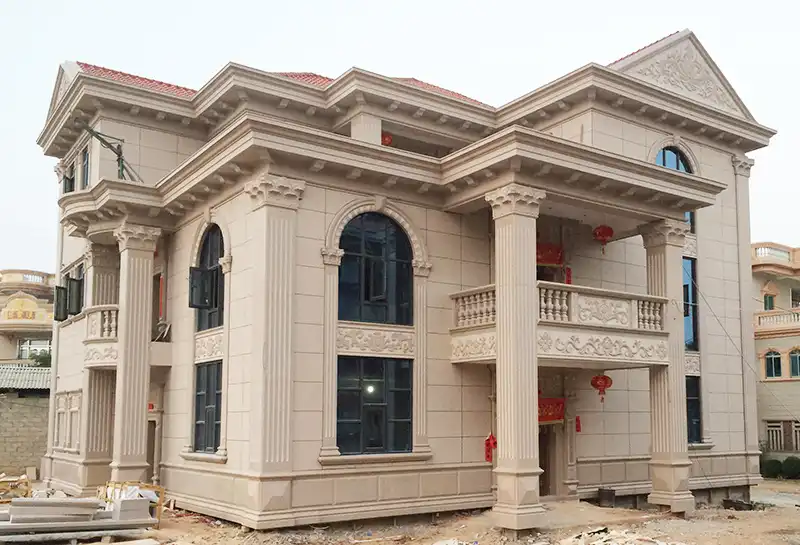
Conclusion
The durability of exterior wall hanging stone in harsh climates depends on various factors, including material selection, installation quality, and ongoing maintenance. By choosing appropriate stone types, ensuring proper installation, and implementing regular maintenance practices, the longevity and performance of stone cladding can be significantly enhanced. Wulian Xintuo Stone Co., Ltd., with its extensive experience and high-quality products, offers reliable solutions for exterior wall hanging stone that can withstand challenging environmental conditions. Their commitment to excellence in stone production and processing ensures that clients receive durable, aesthetically pleasing cladding materials suitable for diverse architectural projects worldwide. For more information or inquiries, please contact sales@xintuostone.com.
References
1. Smith, J. (2020). "Weathering Resistance of Natural Stone Facades in Extreme Climates." Journal of Building Materials, 45(3), 267-285.
2. Johnson, A. & Brown, L. (2019). "Comparative Study on the Durability of Granite and Limestone Cladding Systems." International Journal of Architectural Engineering, 12(2), 89-104.
3. Chen, X. et al. (2021). "Effects of Freeze-Thaw Cycles on the Mechanical Properties of Exterior Stone Cladding." Construction and Building Materials, 305, 124774.
4. Williams, R. (2018). "Maintenance Strategies for Preserving Stone Facades in Coastal Environments." Building Conservation Journal, 33(4), 156-170.
5. Garcia, M. & Lopez, F. (2022). "Long-term Performance of Marble Cladding in Mediterranean Climates: A Case Study." Stone in Modern Buildings, 18(2), 210-225.
6. Thompson, K. (2021). "Advances in Sealing Technologies for Exterior Stone Cladding Systems." Architectural Science Review, 64(3), 245-260.
Send Inquiry
Related Industry Knowledge
- Can Dark Grey Granite Paving Slabs Withstand Heavy Vehicles?
- How Slip-Resistant Are Granite Garden Slabs?
- What Finishes Enhance Royal Ballet Granite in Interiors?
- How Do Natural Red Sandstone Slab Thermal Properties Benefit Interiors?
- Is Cosmic Black Stone Suitable for Bathroom Vanity Tops?
- How Durable Is Exterior Wall Hanging Stone in Harsh Climates?
- How Does Cosmic Black Stone Affect Room Ambiance and Light?
- How Is Red Sandstone Ashlar Different from Rubble Masonry?
- What Are the Key Visual Features of Sandstone Cultural Stone?
- how to tell the diffrence between granite and cultured stone?
 信拓_1747705273728.webp)

